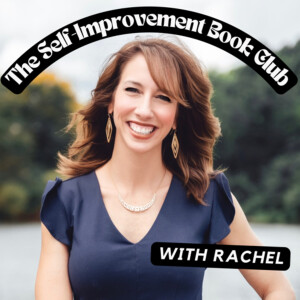
Self-improvement Book Club by Rachel
Education:Self-Improvement

The Mountain Is You: Brianna Wiest
The Climb Begins:
This excerpt introduces the central metaphor of the book: the mountain as an obstacle representing internal struggles and self-sabotage. We learn that it's not solely external challenges that hold us back, but also our own unconscious patterns and limiting beliefs.
Chapter 1: We embark on a journey of self-discovery, acknowledging that self-sabotage is often disguised as self-care. We seek comfort in familiar patterns, even if they hinder our progress or true desires.
Chapter 2: Wiest delves deeper into specific self-sabotage patterns, showcasing 14 common ways we undermine our own success. Examples include worrying about worst-case scenarios, prioritizing approval over well-being, and chasing goals without questioning their true purpose.
Recognizing the Path Blockers:
The author highlights the struggle to recognize self-sabotage, as its signs can be subtle and often emerge only when consequences become dire. She lists key symptoms like being more aware of what you don't want,obsessing over negative fears, or prioritizing appearances over genuine connection.
Understanding the root cause: Wiest introduces the concept of core commitments, which are unconscious desires driving our behavior and often stemming from childhood experiences. These commitments, like a need for control or approval, can manifest as self-sabotaging patterns.
Repressed emotions: The text explains how avoiding emotional discomfort can lead to self-sabotage.Repressed feelings act as hidden motivators, influencing our choices and hindering progress.
The Ascent Awaits:
The narrative emphasizes the importance of confronting repressed emotions and taking action, even when it feels uncomfortable. This requires self-awareness and a willingness to step outside our comfort zone.
Disconnecting action from feeling: Wiest encourages moving forward based on logic and vision, not waiting for the "right" feeling to arise. Taking the first step creates momentum and motivation, guiding us towards a life aligned with our true needs.
Rebuilding connections: The final message underscores the importance of nurturing healthy relationships and seeking support as we navigate the climb.
Overall, these chapters set the stage for the journey of overcoming self-sabotage. Wiest equips readers with tools for self-discovery, urging them to recognize their internal mountains and begin the ascent towards a fulfilling
view more
More Episodes
E53: Think and Grow Rich by Napoleon Hill
 2023-07-17
2023-07-17
 2023-07-17
2023-07-17
E49: Sober curious by Ruby Warrington
 2023-06-18
2023-06-18
 2023-06-18
2023-06-18
E47: Trust by Dr Henry Cloud
 2023-06-06
2023-06-06
 2023-06-06
2023-06-06
E42: The Five Love Languages by Gary Chapman
 2023-05-10
2023-05-10
 2023-05-10
2023-05-10
E41: Atlas of the heart by Brené Brown
 2023-05-08
2023-05-08
 2023-05-08
2023-05-08
012345678910111213141516171819
Create your
podcast in
minutes
- Full-featured podcast site
- Unlimited storage and bandwidth
- Comprehensive podcast stats
- Distribute to Apple Podcasts, Spotify, and more
- Make money with your podcast
It is Free
- Privacy Policy
- Cookie Policy
- Terms of Use
- Consent Preferences
- Copyright © 2015-2024 Podbean.com





